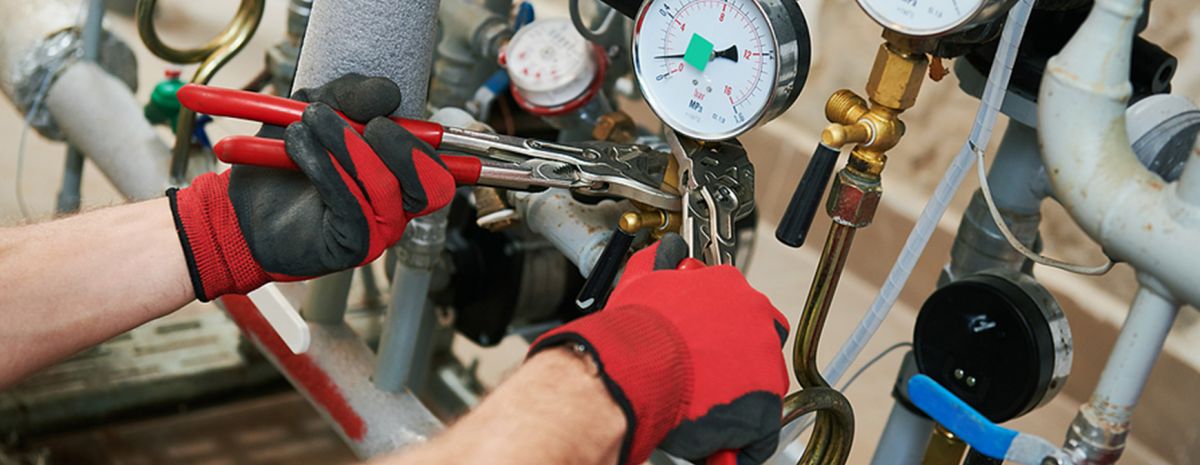TWS is a Great Training Option for Everyone
Learn more about how we can prepare you to advance your career.
Are you thinking about how to create a good future for yourself? Is having a stable, secure job important to you? If you’re looking for a career path that might have a good chance of weathering the ups and downs of current or future economic crises, you might want to consider the skilled trades.
What Careers Are Considered Trades?
What are the skilled trades, first of all? The skilled trades are jobs that require specialized skills, knowledge or abilities. These skills are usually learned in vocational schools, apprenticeships or on-the-job training.
The trades span many different types of jobs:
- Those in the mechanical trades work with heavy or light machinery, such as HVAC installers and locksmiths.
- The construction trades require strength and stamina, and these can include everything from plumbers to electricians to painters to carpenters.
- The industrial trades involve manufacturing and technology, with roles like boilermaker and metal fabricator.
- There are also medical trades, which offer jobs in healthcare, such as dental and medical assistants.
- The culinary arts and cosmetology trade jobs might be somewhat more creative, such as hairstylist, esthetician, chef or pastry artist.
While many high schoolers may receive the message that they need to attend a four-year university to get a good job and be successful in life, this is not always the case. Some trades offer more opportunities, higher pay, greater job security, lower cost of education and deeper personal fulfillment than white-collar jobs.
Have You Considered a Career in the Skilled Trades?
Fill out the form to recieve a no obligation info packet.
For people who like to get their hands dirty, who don’t want to sit in an office all day and who might not want to go the typical college route, a career in the skilled trades could be a strong alternative to the white-collar career path.
3 Skilled Trades with Healthy Job Prospects
While everyone’s interests and aptitudes may differ, the following three jobs could be a good fit for people interested in the mechanical, electrical or construction industries.
If you are a high school student or recent graduate considering the trades, be sure not to overlook the possibility of becoming an electrician, HVAC technician or welder. All three of these jobs require a high school diploma or GED and usually some level of technical training to get started, for example an HVAC, welding or electrician training program.
1. Electrician

Electrician Demand
The demand for electricians is expected to be healthy in the coming years, according to the Bureau of Labor Statistics (BLS). Jobs in this field are predicted to grow 9% over the next decade, which means there might be roughly 66,100 more electricians needed between 2020 and 2030. This demand is greater than average, and Electricians are widely needed.1
How to Become an Electrician
Most independent journeyman or master electricians need to be licensed. But the great thing about Electrician training is that you can be earning a wage while you learn if you get a paid apprenticeship, which could last 4 or 5 years. Many Electricians decide to invest in Electrician trade school training to learn basic skills before applying for apprenticeships, which can sometimes be competitive.
Qualities of Professional Electricians
Applying for an Electrician apprenticeship, whether unionized or non-unionized, is basically like applying for a job, so it’s important to be a qualified candidate. Tulsa Welding School (TWS) offers a 7-month electrician training program, which teaches the fundamentals of electricity, wiring, safety procedures and more.
Some important qualities that most electricians can benefit from having include critical thinking, physical stamina and strength. “Soft” skills like customer service can also be helpful. The ability to troubleshoot, diagnose and solve problems can be important too.
2. HVAC Technician

HVAC Demand
Job prospects for workers in the field of Heating, Ventilation and Air Conditioning, also called HVAC technicians, are expected to be pretty good over the next 10 years, especially for those who are great at troubleshooting. Demand may also see a boost as green technologies and energy efficiencies improve, so this could be a field to consider for people who value environmental sustainability.
How to Become an HVAC Tech
Because HVAC systems have become more and more technologically complex, it can be helpful to receive technical training in the field if you want to be considered for a job. HVAC techs typically learn the trade from those who are more experienced, whether that’s from teachers in high school shop classes, from instructors at a trade school or from supervisors in an apprenticeship. If you’ve taken high school classes in math, physics or vocational skills, these could be solid building blocks for future learning.
TWS offers a 7-month long HVAC training program that provides a hands-on introduction to heating, cooling, troubleshooting and electricity.
Qualities of Professional HVAC Techs
HVAC techs usually need to be pretty well rounded when it comes to having technical and mechanical skills, as well as time management and customer service skills.
Because these professionals often visit residential or commercial buildings and interact with customers to fix, repair or replace HVAC systems, they will need to be able to communicate well, be relatively friendly and show up on time.
Accuracy is important for keeping good records, so being detail-oriented can be helpful. Being good at problem solving could come in handy when it’s time to diagnose malfunctioning HVAC systems, which is often a big part of the job. Math skills are also essential to making correct calculations about heating or cooling requirements in different spaces.
3. Welder

Welder Demand
America’s infrastructure needs an upgrade. In 2021, the United States of America received a C- grade from the Report Card for America’s Infrastructure. This means that the general quality of our roads, railroads, waterways and other public areas is below average.
Welders are part of the vital workforce needed to rebuild and repair these essential public services, such as bridges, highways and buildings. Welders with up-to-date training and high skill levels should have good prospects in this field, especially if they are willing to travel or relocate.
How to Become a Welder
Like the other skilled trades jobs, having some welding training is often a prerequisite for getting a welding job. That’s because there are a lot of specific skills involved, such as reading blueprints, using specialized equipment, calculating dimensions, monitoring heat levels and mastering different welding positions and techniques.
Most entry-level employers prefer to hire applicants who come with some level of welding skills, even if they also provide on-the-job training. If you’ve taken high school classes in physics, chemistry, metallurgy, mechanical drawing or shop mathematics, that could give you a great start into this field.
TWS offers a variety of welding training programs to help students acquire real-world welding skills, including the Professional Welder Training program and the Associate of Occupational Studies in Welding Technology (offered at the TWS Tulsa campus only).
Qualities of Professional Welders
Welding can be a physically demanding job, so physical strength and stamina are important. You may be standing, bending or lifting all day long. This could be a great prospect for people who like to stay active, both physically and mentally.
Welding requires a great deal of mental focus, so being able to pay close attention to details is essential. Having good dexterity and hand-eye coordination is helpful, as well, since welding involves a lot of spatial orientation. Being able to confidently manage equipment and machinery is also a key part of the job.
Why the Skilled Trades Could Be a Good Option for High School Graduates
High school students face plenty of challenges in the modern world, including family pressure, financial strain, emotional stress and uncertainty about a career path in a changing world. If this sounds like you, you’re not alone. In fact, 57% of those who enrolled in or have considered enrolling in a trade school in the past 12 months say the COVID-19 pandemic motivated them to do so, according to a recent survey from StrataTech Education Group.2
If you are graduating high school soon, or have recently graduated, what kind of job market are you entering? The skilled trades often offer a bit more long-term job security simply because these jobs often provide essential services that keep society running, whether that’s fixing someone’s air conditioner, repairing a bridge or installing electrical wiring.
One survey respondent said they think the skilled trades are going to become “more important than ever before” because “jobs in business and banking are turning out to be less stable and less needed, but everyone needs a plumber or electrician at some point.” So true! Of course, there are plenty of different types of skilled trades jobs, but if you are drawn to the mechanical or construction trades, such as welding, electrical wiring or HVAC, call Tulsa Welding School at 1-855-806-4921 to get started preparing for a skilled trades career.
1https://www.bls.gov/ooh/construction-and-extraction/electricians.htm#tab-1
2https://stratatech.com/wp-content/uploads/2021/10/2021-StrataTech-COVID-19-Pandemic-Survey.pdf







